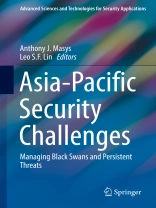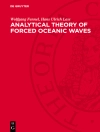This edited book examines the contemporary regional security concerns in the Asia-Pacific recognizing the ‘Butterfly effect’, the concept that small causes can have large effects: ‘the flap of a butterfly’s wings can cause a typhoon halfway around the world’.
For many Asia-Pacific states, domestic security challenges are at least as important as external security considerations. Recent events (both natural disasters and man-made disasters) have pointed to the inherent physical, economic, social and political vulnerabilities that exist in the region. Both black swan events and persistent threats to security characterize the challenges within the Asia-Pacific region.
Transnational security challenges such as global climate change, environmental degradation, pandemics, energy security, supply chain security, resource scarcity, terrorism and organized crime are shaping the security landscape regionally and globally. The significance of emerging transnational security challenges in the Asia-Pacific Region impact globally and conversely, security developments in those other regions affect the Asia-Pacific region.
Innehållsförteckning
Complexity and Security: New ways of thinking and seeing.- Risk and Resilience in the Asia-Pacific region: managing the expected, preparing for the unexpected.- Climate Change and Security in the Asia-Pacific Region.- Cybercrime in East and Southeast Asia: The Case of Taiwan.- Natural disasters and health risks of first responders.- The March, 2011 Fukushima Daiichi nuclear power plant disaster – a foreseeable system accident.- The Maori Response to Seismic ‘Swans’.- Building Energy Resiliency in the Asia Pacific – Providing transition pathways for a more secure and sustainable future.- From Data Modeling to Algorithmic Modeling in the Big Data Era: Water Resources Security in the Asia-Pacific Region under Conditions of Climate Change.- From Gas Explosions to Earthquakes: Case Studies of Disaster Response in Taiwan.- The missing link in the Global Aviation Safety and Security Network: the case of Taiwan.- Universal Participation without Taiwan? A Study of Taiwan’s Participation in the Global Health Governance Sponsored by the World Health Organization.- Dacoity in India: Investigating Thievery and Banditry in the British Raj’s Jewel.
Om författaren
Dr Anthony Masys is a Senior Defence Scientist for the Department of National Defence, Defence Research and Development Canada, Centre for Security Science. His research interests focus on safety and security, risk, crisis and disaster management, critical infrastructure analysis, humanitarian aid, development and disasters, scenario planning, human security, intelligence (alternative analysis), counter-terrorism, complex socio-technical system analysis, modeling and simulation, systems thinking, knowledge management and operational analysis. A former senior Air Force Officer, Dr Masys has a BSc in Physics and MSc in Underwater Acoustics and Oceanography from the Royal Military College of Canada and a Ph D from the University of Leicester. He is Editor in Chief for Springer Publishing book series: Advanced Sciences and Technologies for Security Applications and holds various advisory board positions with academic journals and books series.
Dr Masys is aninternationally recognized author, speaker and facilitator and has held workshops in Europe, North and South America and Asia including at the UN World Conference on Disaster Risk Reduction March 2015 in Sendai, Japan. He has published extensively in the domains of physics and the social sciences.
Lieutenant Colonel Leo S.F. Lin is the police attaché of Taiwan’s National Police Agency (NPA) to U.S. and Canada. In his capacity, he deals with broad issues covering police, fire and disasters. Thus, he liaises with various leading law enforcement agencies, namely FBI, ICE, FEMA, RCMP, INTERPOL, among others. He put special focus on international cooperation, transnational crime and terrorism, and international major event security.
Lin graduated from Taiwan Central Police University and he holds a M.A. in International Relations from the University of Indianapolis. He is a Research Associate with the Research Institute for European and American Studies (RIEAS) in Athens, and member of the Standing Group on Organised Crime of the European Consortium for Political Research (ECPR).












